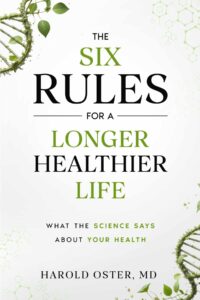Nutritional Studies are Hard

Nutritional studies are hard to understand and often controversial.
You can read an article that seems to say eggs are healthy, and you read another saying they kill you. That happens all the time. For the last week or two, people have been talking about seed oils and how they seem to cause inflammation and colon cancer. I may write a deeper article on seed oils soon, but for now, I will just use it as an example.
People have been concerned about some vegetable oils and inflammation. What triggered the recent discussion was an excellent article that came out in the journal Gut. Its objective was to explore how colon tissue may counteract inflammation and the effects inflammation has on how the tissue handles fats. It is very complicated, and I don’t have the background to understand most of what they were testing. This study’s publication led to many articles in the media reporting that the increase in colon cancer in the young may be from seed oils. This article from Independent goes further than the original journal article, saying, “Common cooking oil could be causing colon cancer surge in young people, warn doctors” and “Unhealthy seed oils like sunflower, grapeseed, canola, and corn could trigger chronic inflammation in the body.”
Most experts in fats and heart disease believe most of the oils listed above help prevent heart disease. Just because they are called experts doesn’t make them correct, but I don’t believe that the Independent can justify their comment that the oils are unhealthy.
This headline from Scientific American is reasonable. “Ultraprocessed Foods High in Seed Oils Could Be Fueling Colon Cancer Risk.” They say that the authors didn’t link eating any type of oil to colon cancer. The investigators found omega-6 oils, which are found in some seed oils, in colon tumors.
This leads to the first point about why nutritional studies are hard. Finding an oil in colon cancer doesn’t mean the oil had anything to do with causing the cancer. Maybe colon tumors preferentially prefer ingesting omega-6 oils, a predominant fatty acid in seeds. The authors don’t even know if the people who provided the colon samples for the study ate omega-6 oils more than they ate other oils.
These are not errors by the investigators. These are errors in the interpretations of the studies.
The biggest problem with nutrition studies is that you never really know what study participants eat. Let’s say you want to determine if canola oil causes inflammation, a known risk of colon cancer. (It might, by the way.) You tell a group of people to avoid all oils except canola oil for a month. This is very difficult because eating at a restaurant ruins the study. But let’s say you can do it. Then you tell another group to eat only food without canola oil for a month. Sounds great. Look at their cholesterol and tests for inflammation and compare the two groups. If the group that ate only canola has elevated tests for inflammation, you proved it, right?
No, you didn’t prove it, though it is suggestive. You don’t know what either group’s participants were eating before. What if the group told to eat canola had been eating olive oil before the study? Olive oil is anti-inflammatory. So now, they are no longer eating something anti-inflammatory, so whatever they ate for the study would look like it increased inflammation. The second group was told to avoid canola oil. What if they replaced the canola with something that affects inflammation?
Another problem with nutritional studies is that no one eats only what you are studying. To avoid canola oil entirely, you must avoid processed food. So, if the study participants told to avoid canola oil were honest, they gave up all processed food. That would undoubtedly lower markers of inflammation. Avoiding canola oil will look healthy, but that may be because the participants gave up McDonalds because they fry in canola oil.
Another big problem is that you need to know the risks and benefits of what you are testing. Let’s say that two tablespoons of canola oil a day increases inflammatory tests by 10%. What does that even mean? What if it takes a 1000% increase in inflammation to cause an increase in colon cancer? (I doubt that is true.) And what if the same two tablespoons of canola oil lowers your risk of a heart attack by 50? (I doubt that is true.) Well, in that scenario, give me the canola oil.
These studies, like the one reported in Gut, are necessary and helpful. They lead to further studies that may show a food’s direct effects on our health. But, as always, be very careful when you read a headline from a news source. The media care mostly, if not only, about you clicking on their article. An appropriate headline would be, “Omega-6 fatty acids are found in colon tumors. It is unclear exactly what that means. Until this is sorted out, I will continue avoiding processed foods and using olive and avocado oil for cooking.
Doing nutritional studies is hard. Even if you study them in great detail, you may not know exactly what it shows.

